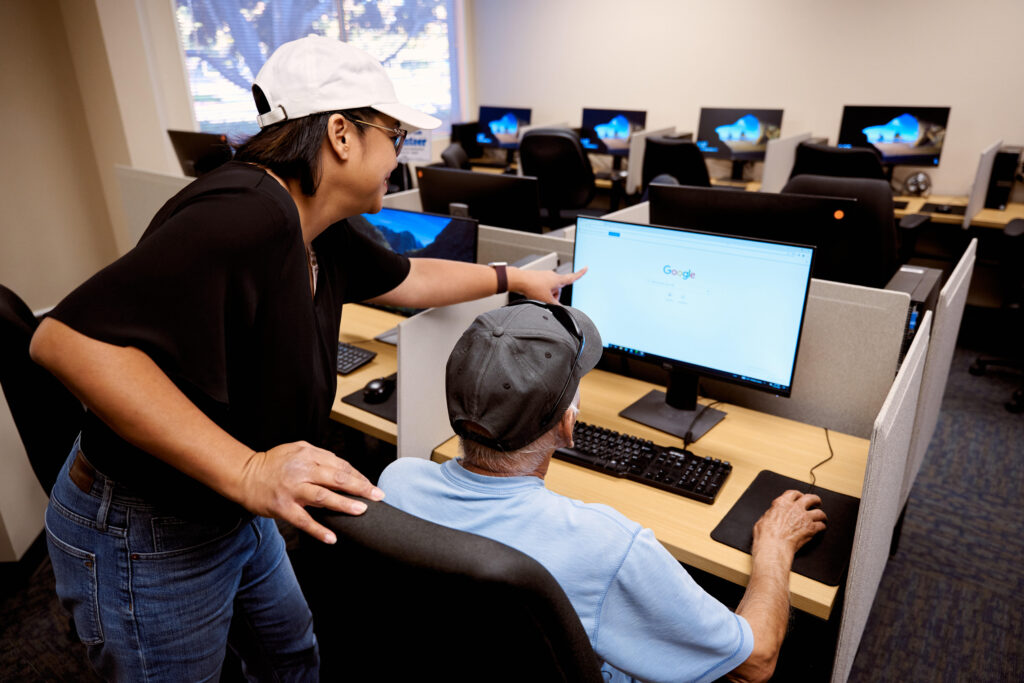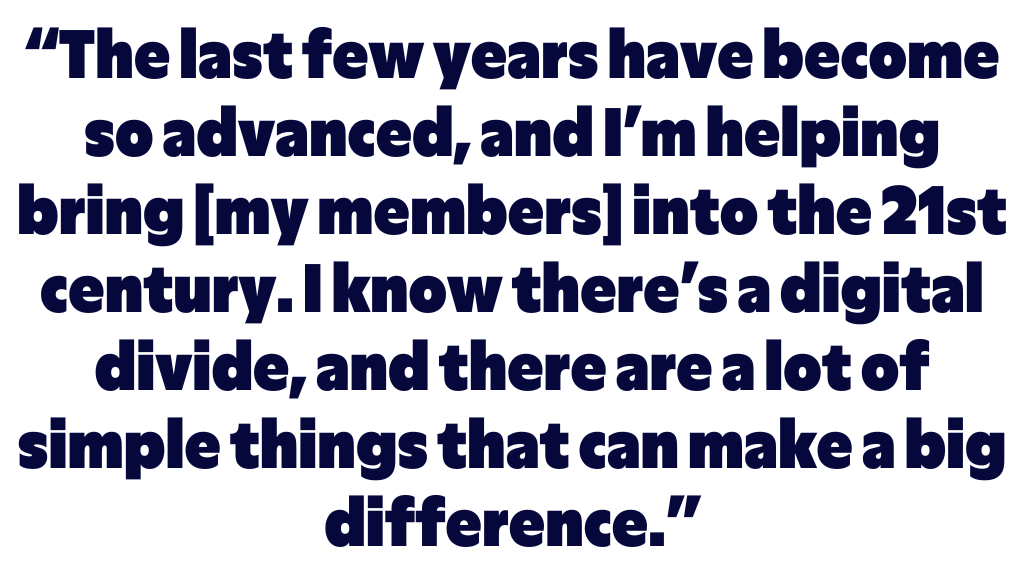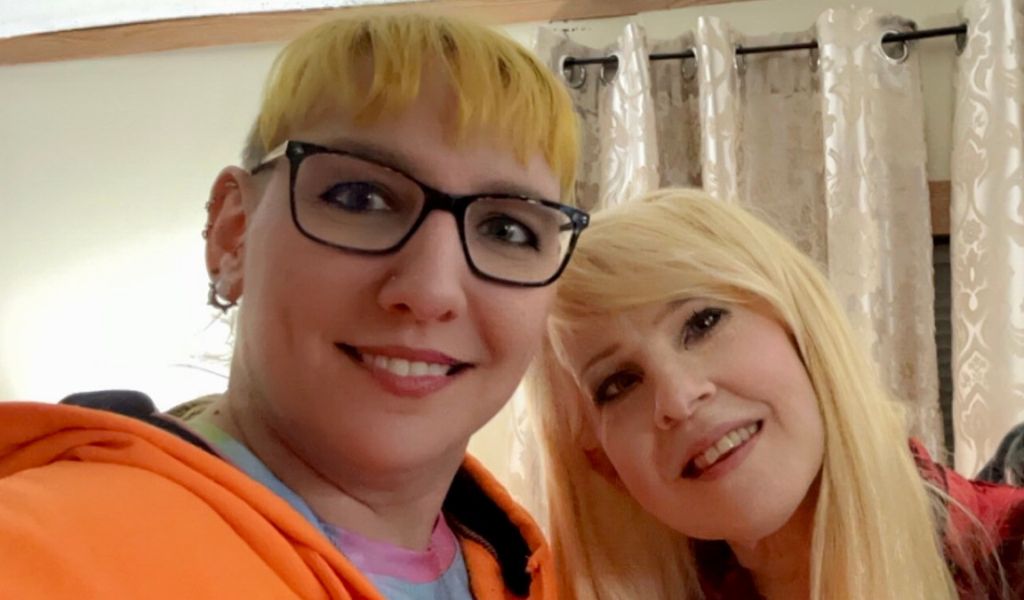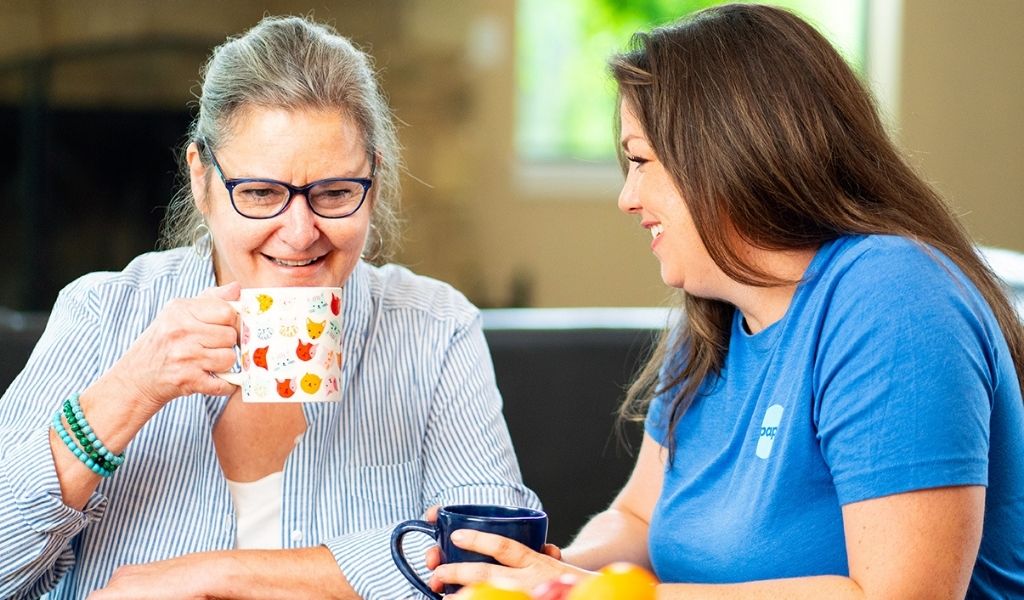
Digital health literacy has never been more vital than it is now. Technology can be a tool for better health, but only if members have access to it and are able to engage with it.
What is Digital Health Literacy?
The World Health Organization defines digital health literacy (DHL) as ‘‘the ability to seek, find, understand, and appraise health information from electronic sources and apply the knowledge gained to addressing or solving a health problem.”
Some examples include the ability to:
- Look up reliable health information online
- Access personal health records online
- Communicate electronically with a healthcare team
- Download and use video conferencing software for telehealth appointments
- Use health and wellness apps
Improving digital health literacy and achieving telehealth equity is critical in order to increase access to care, improve health outcomes, and reduce health disparities. That’s why the Centers for Medicare and Medicaid Services has established health equity requirements that will require Medicare Advantage health plans to show innovative solutions that drive digital health literacy and data related to their programs.
Human connection is crucial for success
Papa has long supported members with technology assistance. In fact, 15% of members request this type of support when they enroll with Papa, and since January 2022, our vetted and compassionate Papa Pals have successfully completed more than 54,000 technology visits with our Medicare Advantage members.
Older adults often face unique challenges when it comes to embracing technology, such as unfamiliarity with digital devices, anxiety about making mistakes, and a need for personalized assistance.
The solution is hands-on support from people they trust, as 73% of older adults say they need someone to help them set up and use new devices, and trust is cited as a top barrier to telehealth adoption and satisfaction.
Our Papa Pals not only provide a patient and understanding presence, but also allow for in-person demonstrations and immediate problem-solving, making the learning process smoother and more enjoyable. Let’s meet one of those patient and understanding Papa Pals.
Papa Pal Brian helps his members navigate the digital world
With a heart full of compassion and a skillset rooted in both social work and technology, Brian is a natural at helping Papa members with all things technology.
On his first visit as a Papa Pal, the member needed help setting up his wireless printer and phone to the wifi. This was a simple task for Brian, but it meant the world to the member.
As Brian started accepting more tech-related visits, he quickly realized how overwhelming technology can be, especially for individuals dealing with impairments or health concerns. One of his regular members has had three heart attacks, and by lending a helping hand with seemingly simple tasks, such as facial unlocking, password management, and device syncing, Brian is alleviating some of her burdens. In fact, he even went above and beyond by transforming one of her extra 30" TVs into a computer monitor, making reading easier when she doesn't have her glasses. These small, yet impactful gestures make a huge difference in this member's day-to-day life.

By being present in his members' homes, Brian is not just a tech problem-solver, but an educator. One particular experience involved a member who fell victim to a redirect link scam, thinking he had a virus. Brian swiftly stepped in, showing him scam-busting videos and highlighting common practices used by hackers, warning him that these scammers target older adults and often get away with it. In fact, tech support scams resulted in 13,900 victims, more than any other type of elder fraud.
But Papa Pals don’t need a tech background to help members with their technology needs or DHL. We make it easy by providing details like information on health plan portals or telehealth services right in the Papa Pal app. And Pals are always able to view visit tasks before accepting a visit so they have the power to choose what’s right for them.
We can all help promote digital health literacy
Many of us have older adults in our lives who could use our help with technology. Maybe you help your parents sync their calendars or access a shared grocery list from their phones. Or maybe you teach your grandmother how to tag her friends on Facebook.
As far as digital health literacy is concerned, you might help an older adult in your life download video conferencing software for telehealth appointments or show them how to use health and wellness apps. As health plans increasingly look to offer education to members with low digital health literacy, the role that in-person support plays cannot be overstated. Human connection is a powerful tool.
Let's continue to bridge the digital divide by providing the support and guidance that older adults need to stay connected with the world around them—in whatever way works best for them.
Learn more about our Digital Health Literacy solution.


